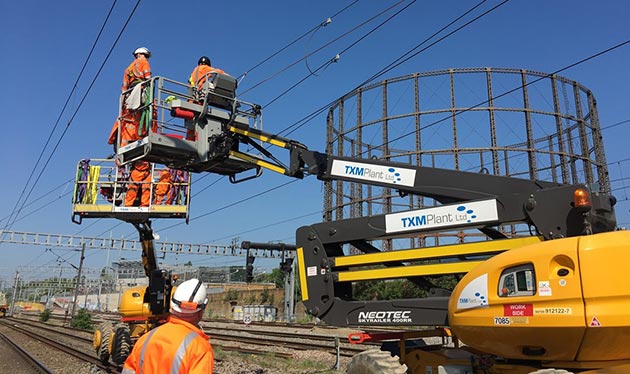Network Rail praised for retentions ban
22nd June 2018UK: Industry groups have called on more companies to follow the example of Network Rail in announcing a ban on retentions.
On Wednesday, Network Rail announced “substantial changes” to its contract terms, committing suppliers to pay subcontractors within 28 days and remove the use of retentions. Network Rail said it recognised that this had long been an area of debate across the industry “due to the detrimental effect it can have on smaller suppliers”.
It will come into effect during the next funding period for Network Rail, which runs from 2019 to 2024 and will include around £48bn worth of projects.
The Building Engineering Services Association (BESA), the electrotechnical and engineering services trade body, ECA, Specialist Engineering Contractors’ (SEC) Group, all bodies that have campaigned against the use of retentions, applauded the move.
BESA’s public affairs and policy manager Alexi Ozioro said that Network Rail had shown exemplary leadership and foresight. “This demonstrates not only that reform can happen, but can happen very quickly. If a major client like Network Rail can do it, so can everyone.”
Colleague Debbie Petford, BESA’s head of legal affairs, commented: “Network Rail’s Tier 1 contractors are now contractually forbidden from withholding retention payments. Hopefully this will trickle down the supply chain. We will wait eagerly to see if this happens, but Network Rail is setting a great example to the wider industry.”
SEC Group CEO Professor Rudi Klein said: “It is great to see large and influential public sector clients like Network Rail supporting best practice. We hope that others will follow, as there is still widespread payment abuse for SMEs in the construction and infrastructure supply chain. It will be a great lost opportunity if we do not all learn from Carillion’s failings.”
Natural step
Having implemented a best practice Fair Payment Charter and applying these principles to their own payments to suppliers back in 2011, Network Rail has described the decision to formalise this regime as ‘the next natural step’.
“The Fair Payment Charter was about recognising that cash flow is the ‘life blood’ for every supplier by committing to pay for goods and services in a fair, predictable and timely way,” commented Network Rail commercial director Stephen Blakey.
“We recognise the challenges faced by smaller suppliers and are in a position to influence the way work on our railway is delivered and paid for. It is in our interest to have a sustainable supply chain at all levels – they are vital to the successful delivery of our projects and the safe operation of Britain’s railway,” he added.
The industry bodies have been instrumental in lobbying for reform on retentions, through shaping and promoting the Aldous Bill, which is due to have a second reading in the House of Commons on 26 October. The Bill seeks to ensure all retentions payments are held in trust to protect sub-contractors from upstream insolvencies.








